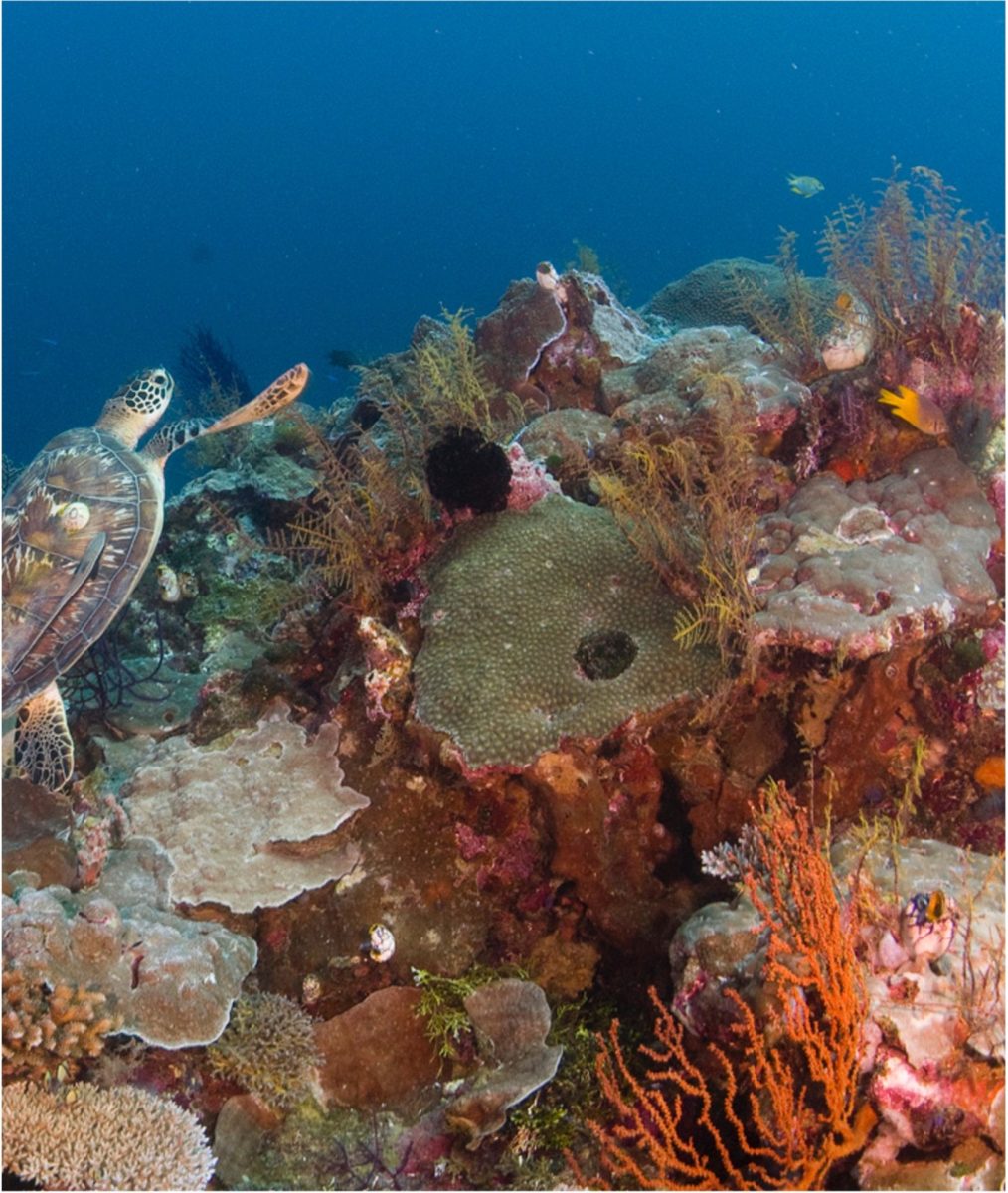
Sea turtle populations are greatly threatened by a number of human activities, such as unselective fisheries, direct take, predation, light pollution, illegal trade, habitat loss and climate change, to name a few. As a key part of marine food webs, they help us maintain a healthy ecosystem by controlling numbers of prey species (such as jellyfish), regulating carbon storage in seagrass meadows and creating a cultural economic environment for coastal communities.
Timed to coincide with World Sea Turtle Day, the GEF/UNDP/PEMSEA ATSEA-2 Project hosted a webinar on 21 June 2022, which brought together key opinion leaders, experts, professionals and community members to celebrate sea turtles and discuss the various challenges they are facing in the Arafura and Timor Seas (ATS) region.
Shared by Australia, Indonesia, Papua New Guinea (PNG) and Timor-Leste, the ATS region is adjacent to the Coral Triangle, which hosts the world’s highest density of marine biodiversity and contains some of the planet’s most precious coastal and marine ecosystems. It is also home to six species of sea turtle, including green turtle (Chelonia mydas), hawksbill (Eretmochelys imbricata), loggerhead (Caretta caretta), leatherback (Dermochelys coriacea), olive ridley (Lepidochelys olivacea) and flatback turtle (Natator depressus). All species are listed as Vulnerable, Endangered or Critically Endangered and are subject to protection via a number of national legislation instruments and international conventions.
Sea turtles suffer mortality through a wide range of man-made and natural impacts, including bycatch, illegal trade and direct consumption, habitat loss and climate change. According to World Wildlife Fund (WWF), a quarter of a million turtles die each year as a result of bycatch, while tens of thousands more are lost due to overharvesting and the illegal wildlife trade.
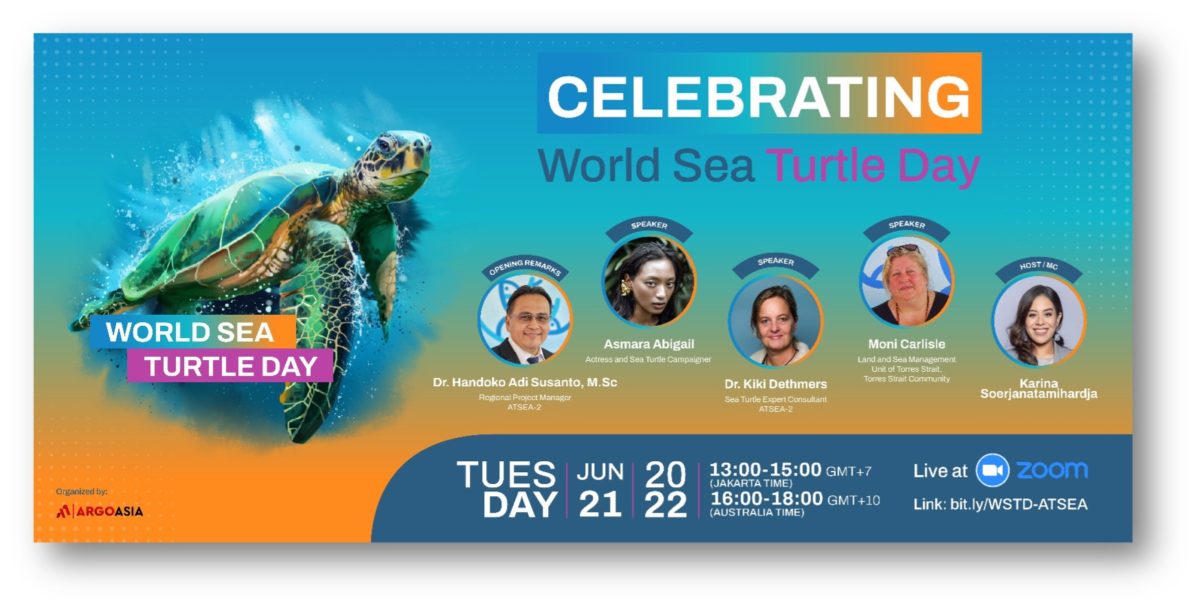
Sea turtles have long been utilised for food and trade, and have been part of ceremonial practices for thousands of years. Sea turtles also play important ecological roles, cropping seagrasses, foraging on sponges on coral reefs and acting as top and middle predators in marine ecosystems.
“Sea turtles are crucial to maintaining healthy beach ecosystems and other organisms – including us – rely on them either directly or indirectly,” said Dr. Kiki Dethmers, Sea Turtle Expert Consultant of the ATSEA-2 Project. “Everything starts with awareness – about sea turtles and how they affect the oceans and coastal communities. Then, try to get involved in or even start campaigns in your region.”
According to a survey conducted by the Indonesian Turtle Foundation, between 2019 and 2020, the illegal trade value of hawksbill turtles was around IDR 5 billion. The Turtle Conservation and Education Centre (TCEC) was built in 2006, as part of a joint initiative by the Indonesian government and WWF-Indonesia to save turtles by eradicating turtle trading. This is one of the biggest conservation efforts to date in support of turtles in Bali.
“At TCEC, we encourage the public not to consume turtle meat and products, by providing local communities with various training programmes and education, improving tourism potential and other activities, as well providing job opportunities to locals of Serangan,” said I Wayan Dedi, who is the marketing officer at TCEC.
“I learnt about the plight of sea turtles while shooting a movie and I realised how endangered they are. Therefore, I used my platform to raise awareness and fundraise for the TCEC in Serangan Island and Denpasar in Bali, for supporting sea turtle conservation,” said Asmara Abigail, who is an actress and a sea turtles campaigner.
On 20 April 2022, the ATSEA-2 Project held a sea turtle expert workshop, designed to raise awareness and develop existing knowledge in relation to the region’s sea turtle populations and finalise a regional action plan for their conservation. The workshop was attended by 27 experts from Australia, Indonesia, Papua New Guinea and Timor-Leste.
In addition to workshop and webinar activities such as those mentioned above, the ATSEA-2 Project is also supporting a range of ongoing conservation initiatives underway in coastal communities of the ATS region. This includes strategic locations such as in Com Village in Lautem, Timor-Leste.
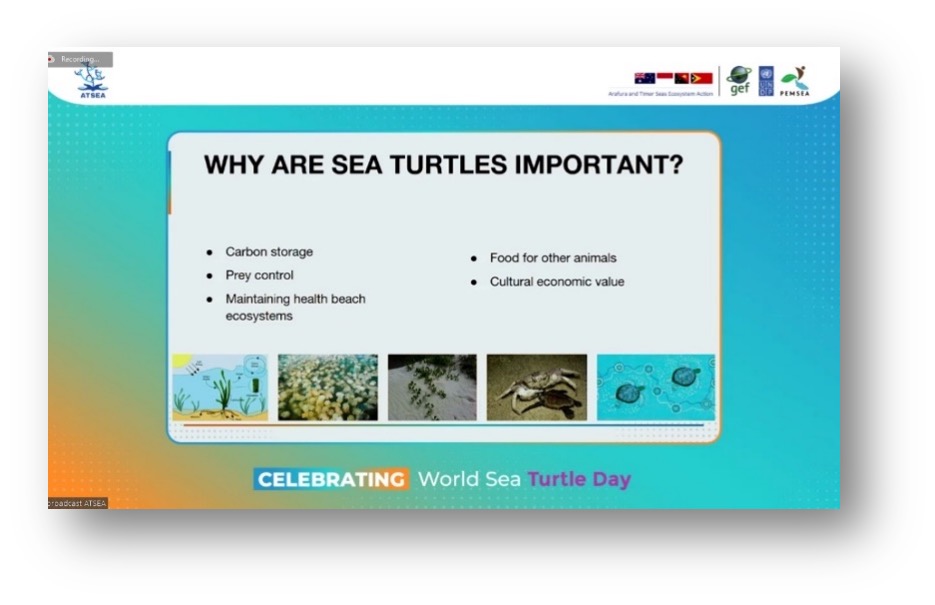
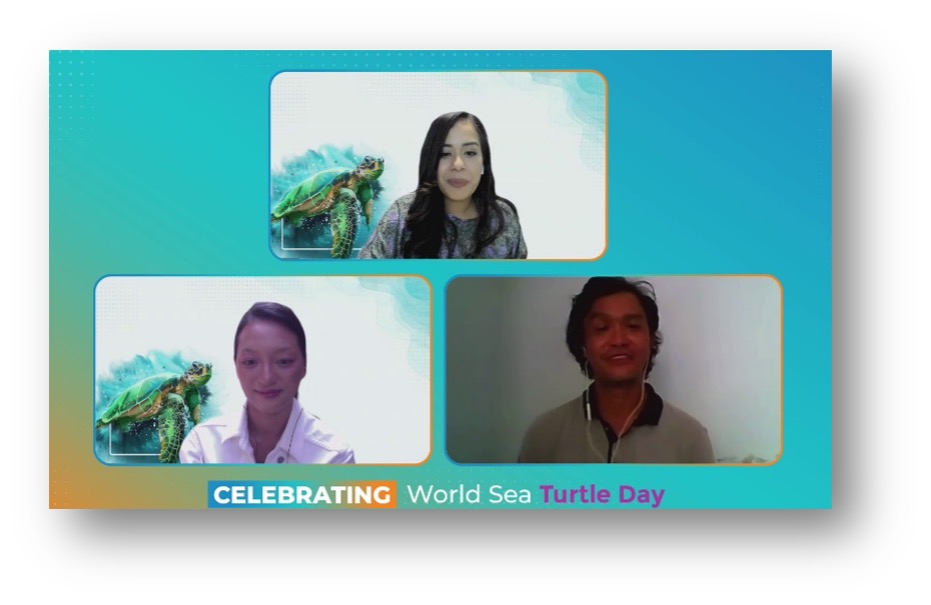
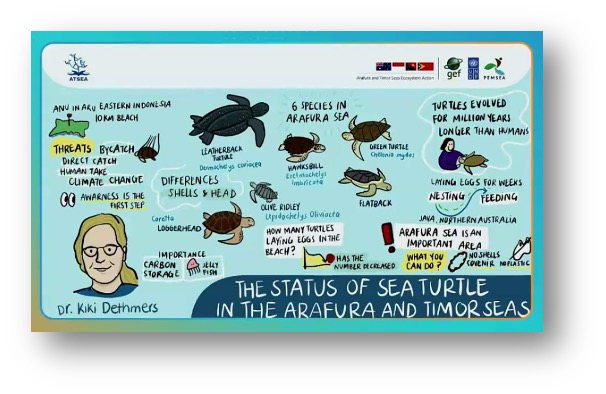
Moni Carlisle, who is the Project Manager of Sea Environmental Management at the Torres Strait Regional Authority, states that conservation in the 21st century is no longer the responsibility of the few who select it as a career, or whose values lead them to “preserve” species for future generations.
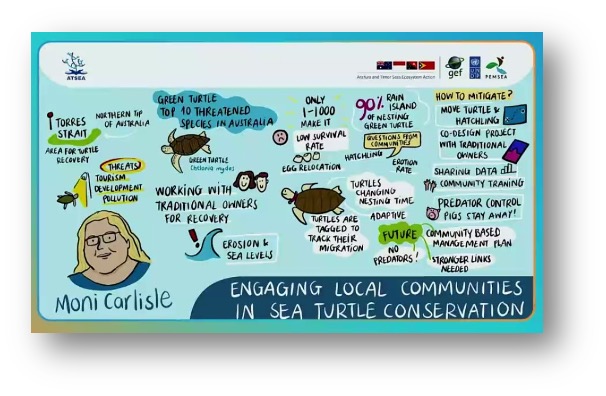
“Conservation is about communities and sea turtle conservation in the Torres Strait emphasises the involvement of Torres Islanders efforts,” says Carlisle. “As climate realities and development increasingly push many species to the brink of existence, creating community-led projects (in which) the sustainability of many endangered species and their ongoing management is critical; especially ones that are driven by the collaborative effort of grassroot communities, non-profits and governments through sustainable partnerships,” she added.
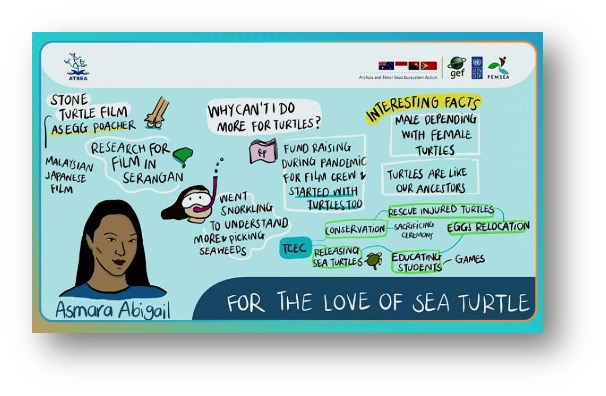
Organised in partnership with ArgoAsia, the World Sea Turtle Day events hosted by ATSEA-2 aimed to highlight the importance of sea turtles, while also encouraging communities and supporting them as they collectively address the myriad threats that sea turtles face.
Speakers at the webinar included ATSEA-2 Project Sea Turtle Expert Consultant, Dr. Kiki Dethmers; Project Manager, Sea Environmental Management Torres Strait Regional Authority, Moni Carlisle; actress and sea turtle campaigner, Asmara Abigail; and TCEC Marketing Officer, I Wayan Dedi.
A recording of the webinar is available via the ATSEA-2 Programme’s YouTube Channel


